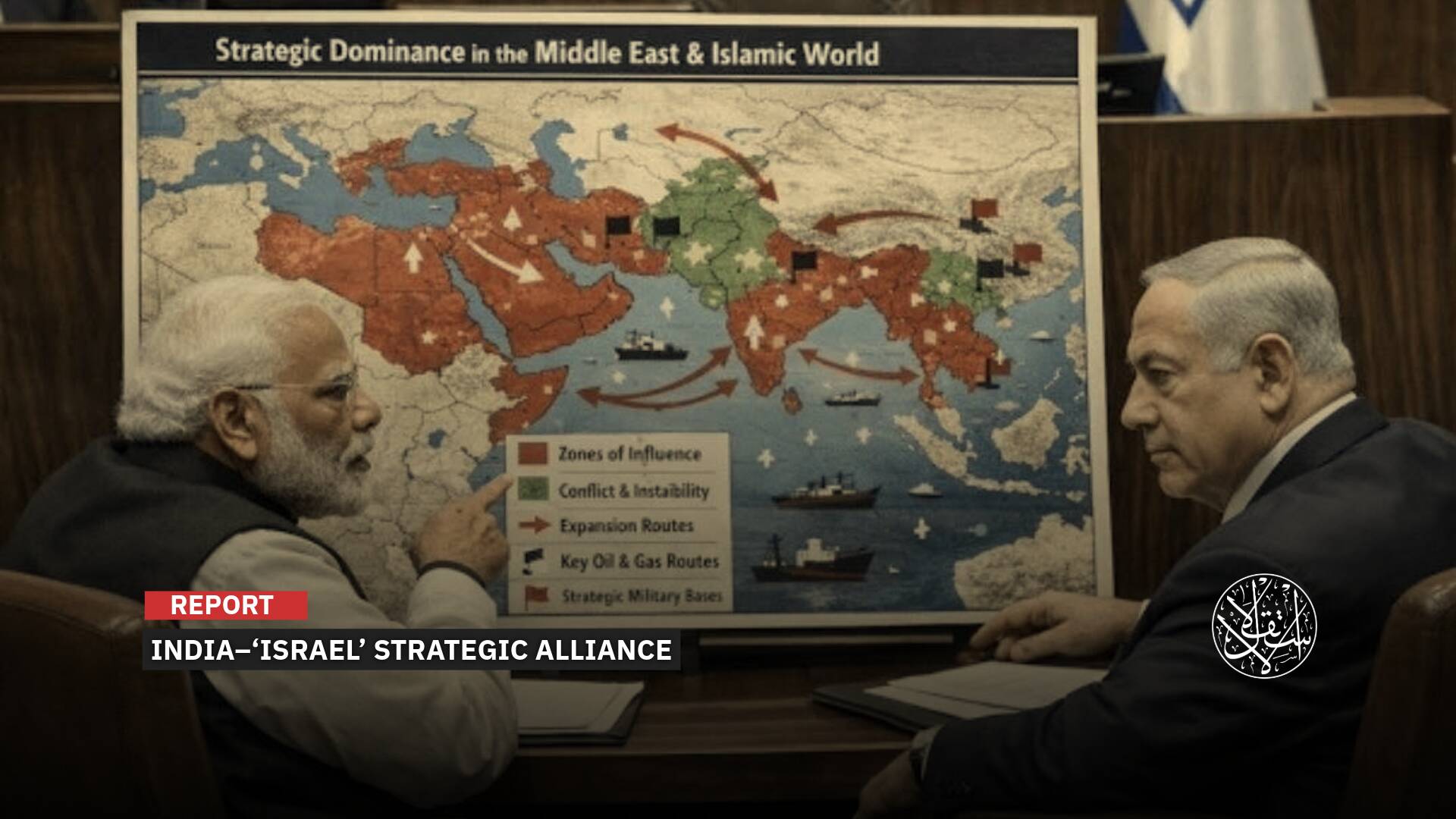Christianity for Oil and Power: The Hidden Story Behind Trump’s Threat to Strike Muslim Nigeria
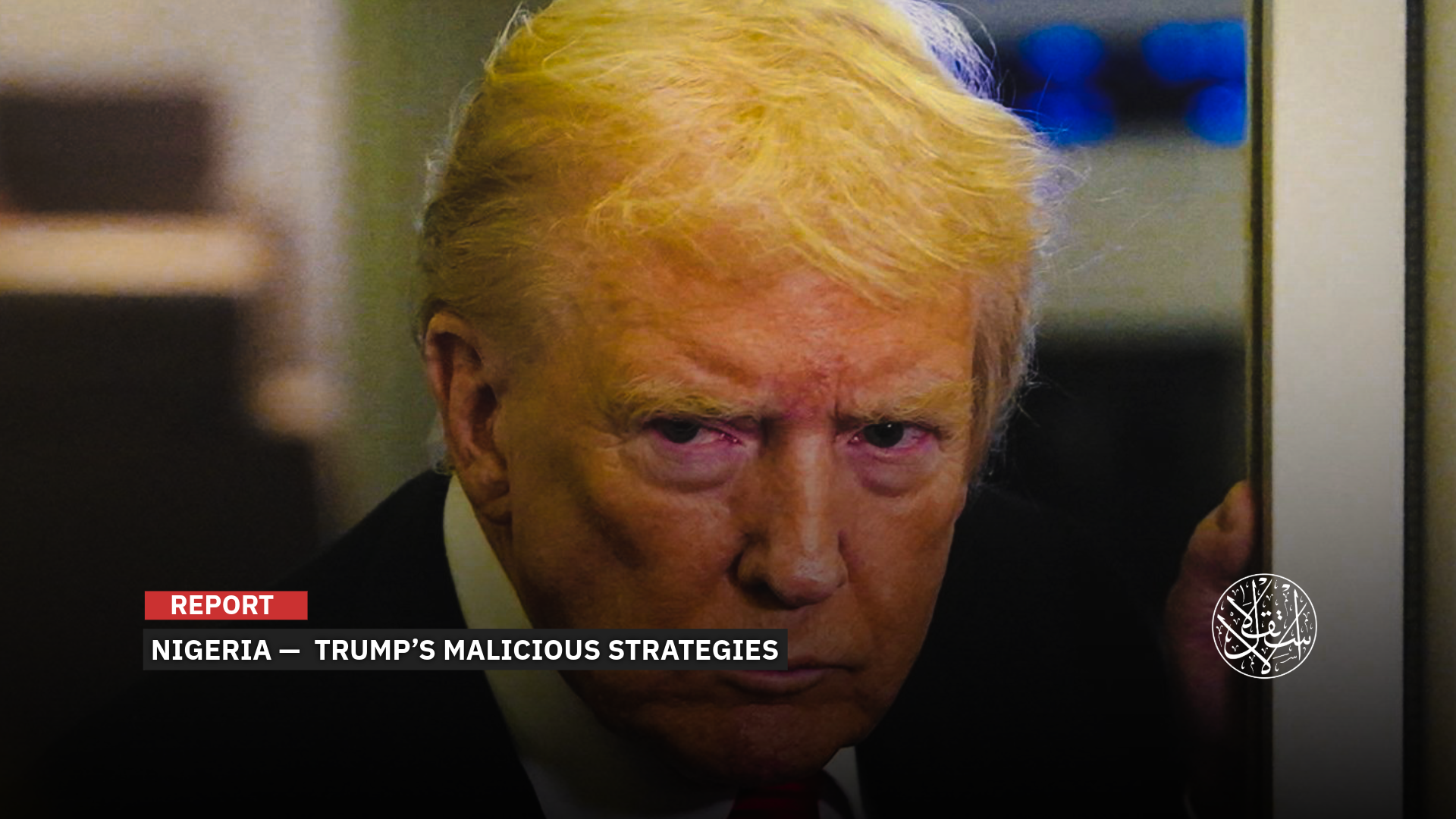
Violence in Nigeria affects both Christians and Muslims alike, driven by conflicts over land and resources.
Positioning himself as a global defender of Christians, U.S. President Donald Trump warned on October 31, 2025, that he would send American forces to strike Nigeria unless it stopped what he called the “killing of Christians” by “Islamic terrorists.”
A day after claiming that Christianity faced “an existential threat” in Nigeria, Trump said he had asked the Pentagon to prepare for possible military action, following a campaign by his evangelical allies who alleged mass killings of Christians.
He also announced that the United States would designate Nigeria as a “country of particular concern” under the Religious Freedom Act, a move that could lead to sanctions. The U.S. State Department uses this label for nations accused of serious violations of religious freedom, citing Nigeria’s supposed “failure to protect Christians.”
The sudden American focus on Nigeria appears to blend religion with politics, catering to Trump’s evangelical base while serving economic interests tied to Abuja’s oil, as the country remains Africa’s largest producer.
There is also a geopolitical dimension, as Washington seeks to use Nigeria as a foothold to counter growing Chinese and Russian influence in Africa, leveraging the issue of “Christian persecution” to pressure the government.
Nigeria has a population of about 160 million people, roughly 50 to 60 percent Muslim, around 40 percent Christian, and dozens of smaller religious groups across the country.
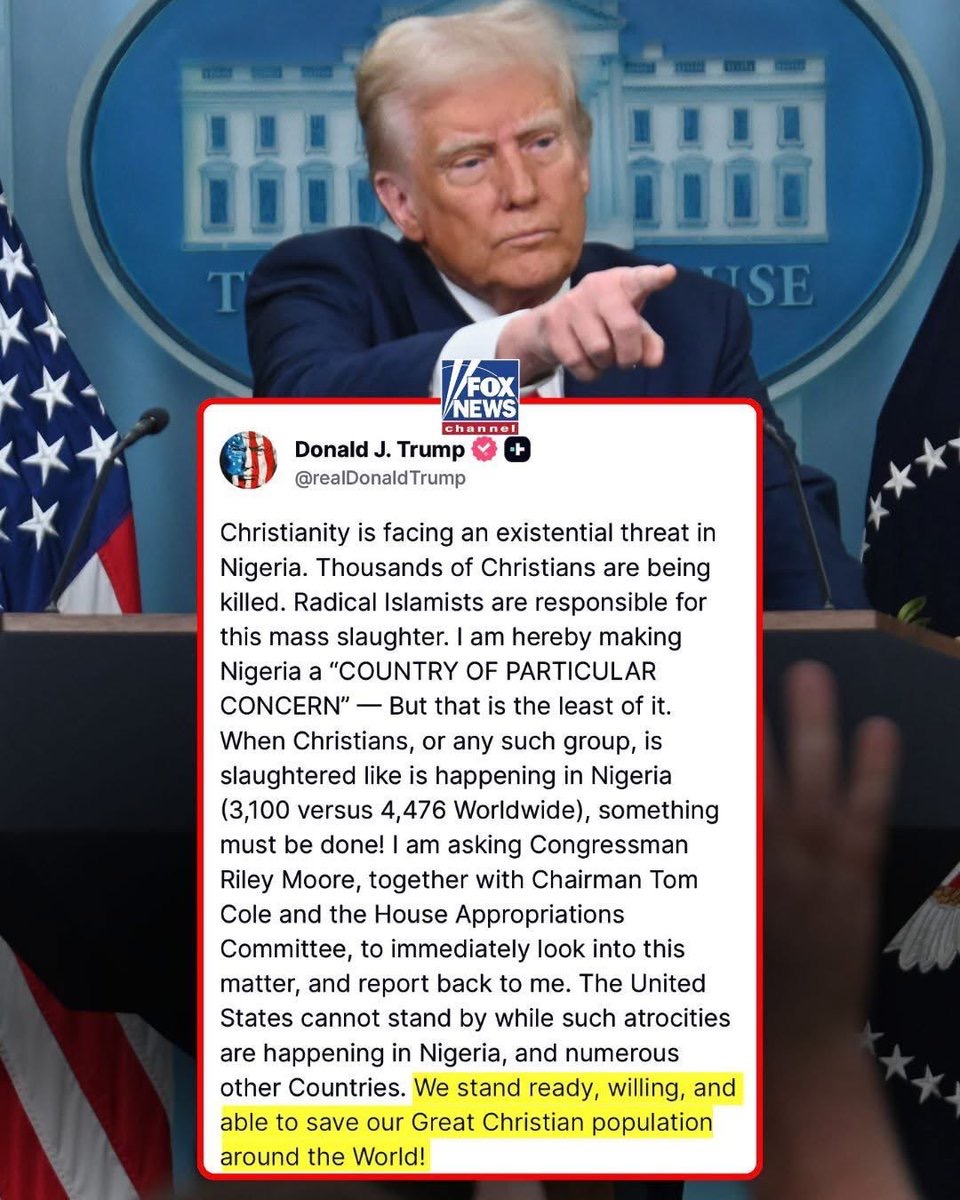
Using Religion as a Political Tool
Under the 1998 Religious Freedom Act, the U.S. president has the authority to make such designations, but in practice the decision is usually based on recommendations from the U.S. Commission on International Religious Freedom, along with assessments by State Department experts.
Trump, however, bypassed this process and issued the designation without waiting for any recommendations. According to the Associated Press, he directed a special House committee, led by Republican representatives Riley Moore and Tom Cole, to immediately investigate the matter and report directly to him.
The Trump administration’s focus on religion was largely political. His message was aimed at a domestic audience of conservative and evangelical voters concerned with Christian persecution abroad. By framing Christianity in Nigeria as facing an “existential threat,” he reinforced a narrative that resonated with this base.
This rhetoric also served to please hardline lawmakers such as Senator Ted Cruz and the evangelical pastors who form the backbone of Trump’s support. Cruz has been leading efforts in Congress to push for Nigeria to be labeled as a violator of religious freedom, citing what he calls “mass Christian killings.”
According to the Associated Press, Cruz described Trump’s move as a decisive step toward holding Nigerian officials accountable and changing their behavior, saying it targets those who enforce blasphemy laws and Islamic law in Nigeria.
Speaking to Fox News, Cruz claimed that “since 2009, over 50,000 Christians in Nigeria have been massacred,” and “over 20,000 churches and Christian schools have been destroyed.” He called the violence “a crisis of religious genocide” and urged tougher U.S. action.
Trump’s use of religion in Nigerian policy dates back to his first term. In December 2020, his administration designated Nigeria as a “country of concern” for religious freedom violations—a classification later revoked by President Joe Biden in November 2021.
The issue resurfaced on March 12, 2025, when a House Foreign Affairs Subcommittee on Africa, pushed by Trump allies, held a hearing on “ongoing violations of religious freedom in Nigeria.” Lawmakers urged Secretary of State Marco Rubio to reapply the “country of particular concern” label, citing the need to “protect persecuted Christians.”
They alleged that “over 52,000 Christians have been killed by Islamic extremists in Nigeria,” though they also acknowledged that about 34,000 moderate Muslims have been killed since 2009, attributing the violence solely to “Islamic attacks” while ignoring similar crimes by extremist Christian militias.
In reality, the violence in Nigeria affects both Christians and Muslims, driven by disputes over land, resources, and economic hardship. The Nigerian government rejected Trump’s claims.
Foreign Minister and President Bola Tinubu denied allegations of genocide against Christians, asserting that all faiths enjoy freedom of worship in Nigeria and reaffirming that “the United States remains a close ally.”
The Numbers Tell a Different Story
Trump’s growing use of religion in his rhetoric toward Nigeria coincided with an escalation by Christian organizations promoting claims of persecution—alongside lobbying campaigns supporting Nigerian separatist movements like Biafra.
Mark Walker, Trump’s appointee as U.S. Ambassador for International Religious Freedom, told Fox News on October 31, 2025, that “it’s probably 4,000 to 8,000 Christians killed annually,” calling for U.S. intervention and stronger action by the Nigerian government.
Walker, a former pastor and Republican congressman, said he was working with church networks across Africa to protect missionaries and Christians and was coordinating with the State Department to pressure Abuja.
The international group Open Doors claimed that nearly 70 percent of all Christians killed worldwide for their faith in 2024 were in Nigeria, according to Fox News, a far-right network aligned with Trump. It blamed Boko Haram, the Islamic State in West Africa Province (ISWAP), and “Fulani militant herders” for most of the bloodshed, saying they often targeted Christian farmers in central Nigeria.
However, independent analyses show that the problem is far broader than persecution of Christians alone. Violence in Nigeria affects both Muslims and Christians, largely due to disputes over land, grazing routes, and dwindling resources. In central Nigeria, clashes between mostly Muslim herders and Christian farmers have long been mistaken for religious conflict, though experts emphasize that land scarcity and population growth are the real drivers.
The Associated Press refuted Senator Ted Cruz’s claims of a “massacre of Christians” in Nigeria, reporting on November 2, 2025, that the data do not support those allegations. The agency noted that Nigeria has long suffered from insecurity on multiple fronts, including attacks by Boko Haram, which targets Muslims it deems insufficiently devout as well as Christians.
AP added that religiously motivated attacks occur against both Christians and Muslims, while farmer–herder clashes, separatist movements, and ethnic rivalries also contribute to the violence. Analysts cited by the agency said that the majority of victims of armed groups are Muslims in Nigeria’s Muslim-majority north, where most attacks occur.
Joseph Hayab, a former chairman of the Christian Association of Nigeria in Kaduna State, among the worst hit by the insecurity, disputed claims of “Christian genocide.”
Data from the U.S.-based Armed Conflict Location & Event Data Project (ACLED) show that between January 2020 and September 2025, 20,409 people were killed in 11,862 attacks against civilians in Nigeria. Of those, 385 attacks targeted Christians, leaving 317 dead, while 196 attacks targeted Muslims, killing 417—meaning more Muslim than Christian victims, according to the AP.
American analyst Jan Hallenberg told The Sweden Herald on November 2, 2025, that Trump’s threats of a “religious crusade” in Nigeria fit into his pattern of “global war rhetoric,” calling it “an empty threat,” since “there’s nothing for him to actually bomb there.”
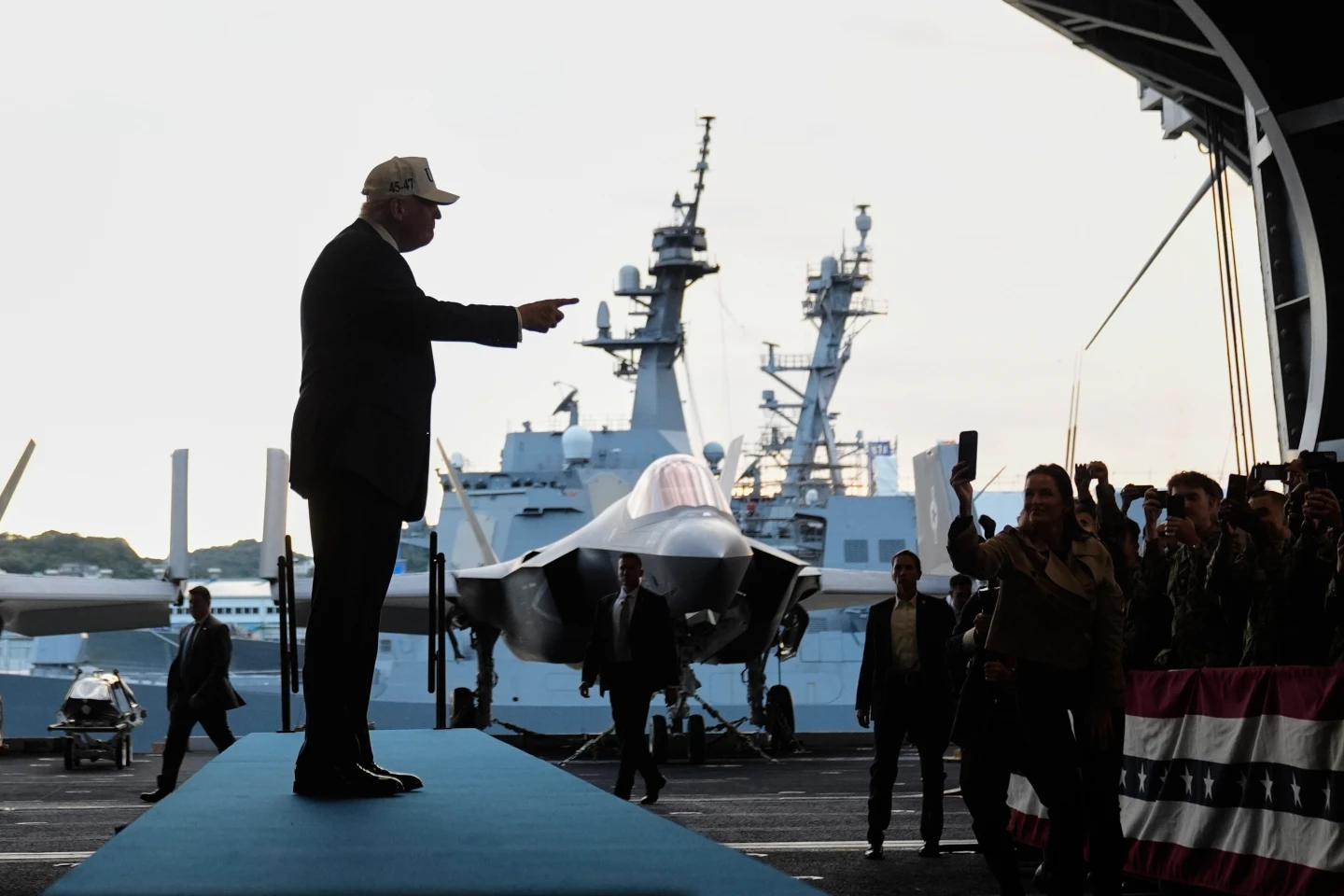
What Does Biafra Have to Do With It?
Ironically, the talk of U.S. military intervention in Nigeria began soon after Moran Global Strategies—a lobbying firm representing the self-declared “Republic of Biafra” government-in-exile, a Christian separatist movement—sent a letter to members of the U.S. Congress in March 2025 urging them to act.
According to documents filed under the Foreign Agents Registration Act (FARA), the firm warned lawmakers about what it described as “the persecution of Christians” in Nigeria. The letter drew praise from the so-called “Biafra Republic Government in Exile,” a banned separatist entity in Nigeria that has long sought Western backing for its “cause.”
Biafra was the name of a short-lived, Christian-majority breakaway state in southeastern Nigeria that declared independence in 1967, triggering a brutal civil war that lasted until 1970, when the region was reabsorbed into Nigeria.
According to a report by The Christian Post, the Trump administration began showing what it called a “humanitarian concern” for Biafra, under the pretext of protecting Christians from alleged government persecution in Nigeria.
Analysts suggest that Washington’s renewed interest in the Biafra issue, framed through a religious lens, is driven less by compassion and more by political and economic motives: appealing to Trump’s evangelical and conservative base while securing potential energy deals for U.S. companies in the oil-rich Niger Delta.
Biafra lies within this delta region, which accounts for more than 70 percent of Nigeria’s oil exports.
Oil and Influence
Oil appears to be one of the driving forces behind Washington’s renewed interest in Nigeria, framed as concern over sectarian conflict and “Islamic extremism,” but in reality serving to weaken the country and tighten control over its oil wealth.
Nigeria remains Africa’s largest oil producer, pumping an average of 1.6 million barrels per day in 2025, according to an OPEC report released in September that year. Its Bonny Light crude is prized for its low sulfur content and ease of refining, making it highly attractive to the U.S. market, which continues to seek diversified energy sources.
Officials at the U.S. Department of Energy have confirmed that the Trump administration is considering increasing crude imports from Nigeria as part of a broader energy diversification strategy amid instability in the Middle East.
In essence, Washington is reopening channels for Nigerian oil imports as a hedge against potential supply disruptions from the region, while using religion as a political tool against the West African nation.
Before 2015, the U.S. sourced about 9 percent of its oil from West Africa. But after domestic shale production declined, the Trump administration, upon returning to power in 2025, revived efforts to diversify energy imports, Reuters reported.
Since Trump’s return to the White House, Africa has reemerged as a key focus of American foreign policy, with Nigeria topping the list, under the banner of “defending religious freedom” and “protecting Christianity from existential threats.”
An analysis published by Arise News on March 10, 2025, noted that the Trump administration was reshaping its energy policy and backing fossil fuel expansion in Nigeria.
Similarly, The North Africa Journal wrote on August 7, 2025, that under Trump, U.S. policy in Africa centers on “oil and mineral wealth,” using evangelical networks as informal channels to influence governments across Central Africa. The report added that Washington’s religious rhetoric provides a political cover to counter Chinese and Russian influence while securing access to vital oil, gas, and mineral reserves.
Researcher Deborah Amos said America’s discourse on “religious persecution” in Africa is often a façade for strategic objectives, chiefly securing oil supply routes and winning new contracts for U.S. corporations.
Ultimately, the media focus on “Christian persecution” serves as leverage to pressure the Nigerian government into accepting U.S. investment and energy terms.
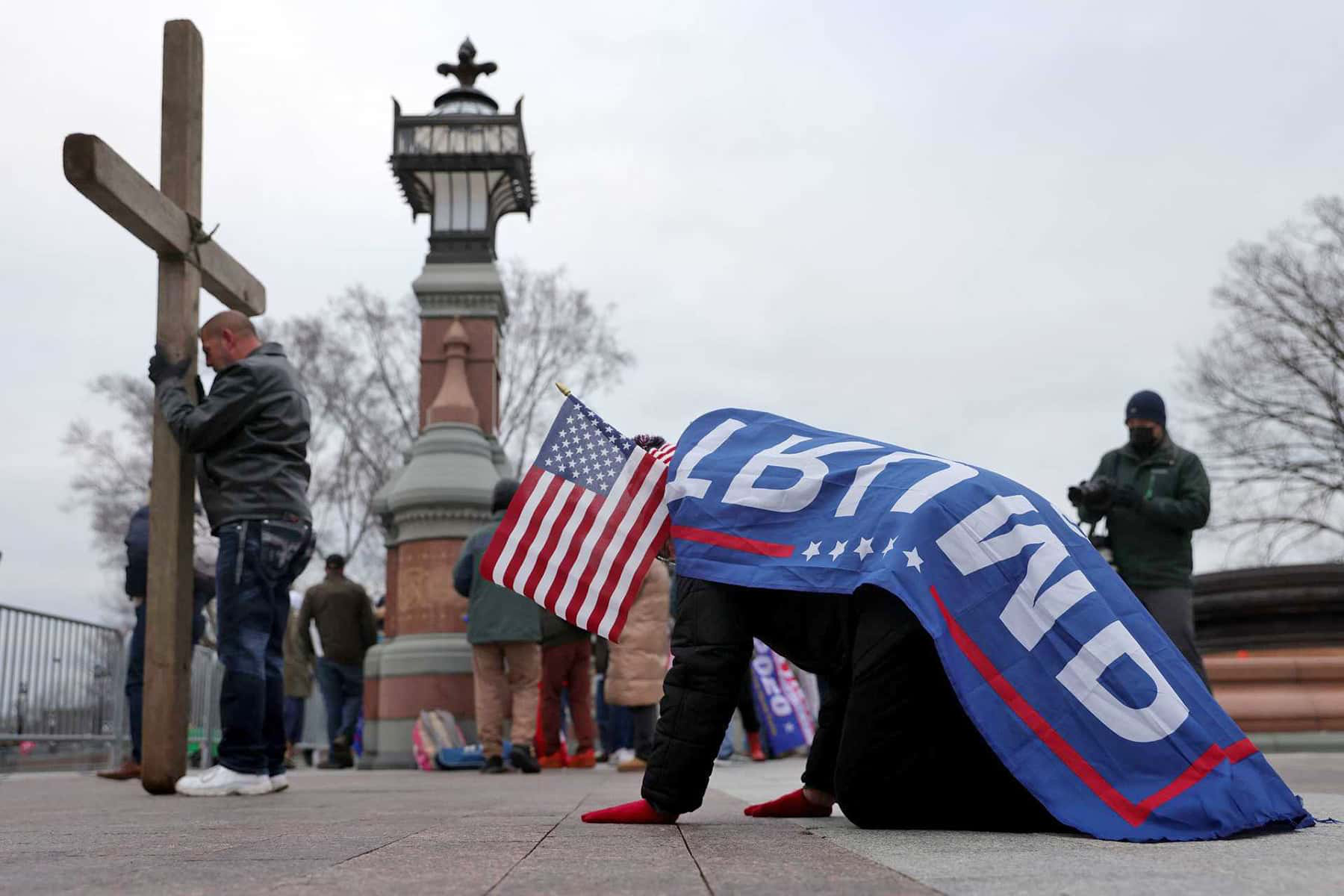
There are growing signs that oil and geopolitical competition with China and Russia lie behind Washington’s religious rhetoric on Nigeria, according to several Western analyses.
American analysts suggest that the Trump administration’s “religious freedom” narrative may in fact mask broader economic and strategic goals, including access to oil, energy security, and renewed influence in Africa, pointing to a complex web of overlapping U.S. interests.
Washington’s renewed focus on Nigeria is also tied to its rivalry with Beijing and Moscow in West Africa. China has invested more than $14 billion in Nigerian energy and infrastructure projects since 2018, while Russia has sought to expand its military footprint through defense contracts and training programs with the Nigerian army.
Analysts say the U.S. views Nigeria as a “strategic anchor” in countering China’s and Russia’s growing influence on the continent. The Trump administration has linked its energy agenda to its effort to push back against Chinese involvement in West Africa’s oil infrastructure.
As part of this strategy, Trump hosted several West African leaders, emphasizing trade and investment as a means of curbing Chinese and Russian sway, though those leaders, in turn, prioritized security cooperation with Washington.
Rose Keravuori, former intelligence director at U.S. Africa Command, wrote in a July 21, 2025, article for the Atlantic Council that ensuring U.S. access to Africa’s critical mineral reserves remains a top strategic priority for the administration.
She added that Trump’s renewed Africa policy centers on competition over the continent’s abundant natural resources, its fertile lands, rich minerals, and vast oil deposits, all seen as vital to sustaining American global power.
Sources
- Trump threatens US military action in Nigeria over treatment of Christians
- Trump designates Nigeria as 'country of particular concern' over widespread Christian persecution, killings
- Trump opens the door for sanctions on Nigeria over persecution of Christians
- A US senator claims ‘Christian mass murder’ is occurring in Nigeria. The data disagrees
- An appeal to Trump Administration to redesignate Nigeria as a Country of Particular Concern
- Geopolitics: Religion, Oil, and Minerals are Now Washington’s Africa Strategy
- At Trump’s recent summit, the US talked trade. But West Africa wants security first.







